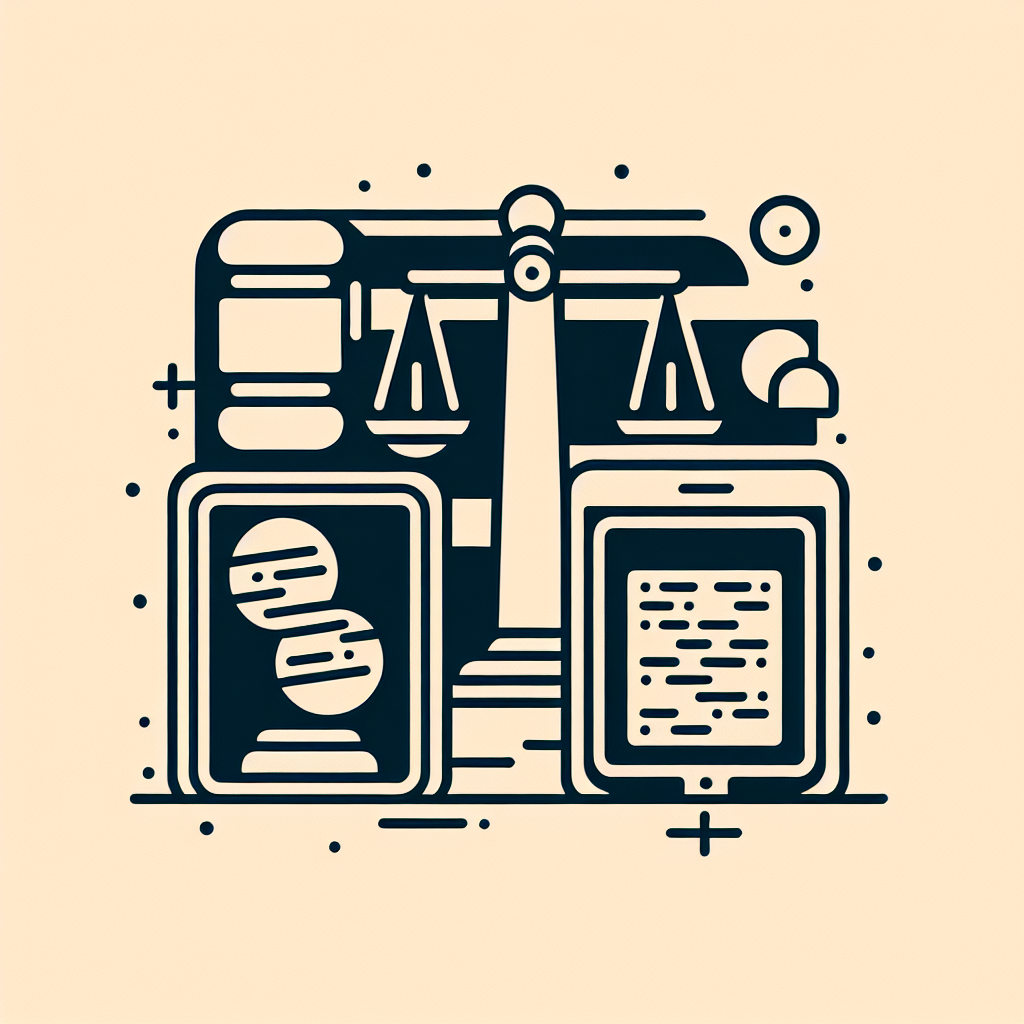Introduction to Smart Contracts and Automation
Smart contracts are transforming the landscape of business operations and agreements worldwide through the power of automation and blockchain technology. Have you ever wondered what exactly makes these digital contracts so revolutionary? They operate without the need for middlemen, making processes faster, more transparent, and more cost-effective. This automated system enables the verification and execution of agreements with unprecedented efficiency, particularly across vast regions such as Africa where financial systems are evolving rapidly.
Understanding Smart Contracts
Smart contracts distinguish themselves from traditional contracts by being self-executing with the terms of the agreement directly written into lines of code. These operate on blockchain platforms, ensuring every transaction is transparent and secure. But how do they actually work? Imagine a vending machine. You input your money, select your item, and the machine delivers with no human interaction needed. Similarly, once the predefined conditions of smart contracts are met, they automatically trigger actions like transferring funds or updating records.
What are smart contracts? Smart contracts are self-executing contracts with the agreement’s terms directly written into their code, operating on a blockchain for secure and transparent transactions.
Blockchain technology ensures that transactions are easily traceable, providing a tamper-proof record accessible to all parties involved. This eradicates the need for intermediaries, thereby greatly reducing costs and processing time. In revolutionizing business automation, smart contracts establish a new level of operational efficiency.
With this understanding, it’s clear that smart contracts offer remarkable security and reliability advantages, largely due to their decentralized and encrypted nature. Imagine the potential in a continent like Africa, where accessibility and scalability can have profound impacts on financial inclusion and economic growth. The smart contracts present a robust solution to many challenges faced by traditional financial systems. This, in turn, highlights notable use cases in Africa where these technologies can be game-changers.
“Jara- Unlocking the Future to Africa’s Crypto Ecosystem.” The Jara platform exemplifies how smart contracts integrate into wider blockchain applications, fueling Africa’s $200B+ digital asset economy.
These advancements are not just limited to financial transactions. Consider how automation might translate into other industries. For instance, smart contracts are paving the way in supply chain management by enabling unparalleled transparency and efficiency, which you can explore further here.
Given these potential benefits, understanding the foundational principles of smart contracts is crucial for anyone looking to innovate or streamline operations in today’s digitally driven world. In doing so, businesses can harness these cutting-edge technologies to establish secure, efficient processes that transcend traditional models.
What makes smart contracts secure? Smart contracts are embedded with cryptographic techniques, and their decentralized execution on blockchain networks makes them highly secure and immutable.
Smart contracts, through their very design, encourage honesty and transparency, attributes that are necessary for fostering trust among users. As industries innovate, the demand for such attributes rises, prompting a gradual yet significant shift towards automated systems, especially in areas like Africa where traditional infrastructural barriers are prevalent. As you consider adopting such technologies, equip yourself with comparative insights between smart contracts and traditional contracts for a well-rounded understanding.
Advantages of Using Smart Contracts for Automation
Leveraging smart contracts for automation can offer numerous benefits, fundamentally changing how businesses operate by enhancing efficiency, security, and reliability. Let’s dive into the key advantages these digital marvels provide, transforming traditional contracts into dynamic, self-executing agreements that do the work for you.
Efficiency Gains
Smart contracts are touted for their ability to eliminate manual processes and intermediaries, resulting in faster, more cost-effective transactions. But what specific efficiencies do they bring to the table?
- Automation of Processes: By coding the terms of agreements directly into a digital contract, smart contracts can execute transactions automatically once predefined conditions are met, removing the need for manual interventions. This drives a significant leap in processing speed and accuracy.
- Elimination of Middlemen: Traditional contracts often require intermediaries such as brokers or agents to oversee execution. Smart contracts cut out these middle layers, allowing direct transactions between parties. This not only saves time but also minimizes transactional costs.
- Cost Reduction: By automating the transaction process, companies can dramatically reduce operational costs associated with human errors and resource allocation.
- Time Savings: Traditional methods can be time-consuming, particularly with complex contract negotiations and executions. Smart contracts streamline this by ensuring immediate implementation once the conditions are satisfied, vastly reducing the time to completion.
In the context of Africa — a region experiencing rapid digital transformation — the need for efficient, cost-effective transactional processes is crucial. As noted in analyses of blockchain technologies, smart contracts can serve as a backbone for boosting the economy by enabling seamless, trustless agreements.
What is a Smart Contract? A smart contract is a self-executing contract with the terms of the agreement between buyer and seller being directly written into lines of code, removing the need for third-party intervention.
Enhanced Security
One of the standout features of smart contracts is their security. But how do they secure transactions better than traditional methods can?
- Immutable Records: Once a smart contract is initiated and executed, it cannot be altered. This characteristic ensures that all transaction records remain permanent and tamper-proof, providing a reliable history of all operations.
- Blockchain Technology: Smart contracts reside on blockchain networks, like Ethereum or Jara’s own proprietary Layer 2 blockchain, which are known for their robust security protocols. This setup prevents unauthorized access and fraudulent alterations.
- Cryptographic Methods: The use of cryptography secures the transactions, making them highly resistant to external attacks.
The use of these security measures is especially vital for regions like Africa, where the digital economy is still burgeoning, and traditional systems may pose risks due to lack of infrastructure.
Reliability and Transparency
Smart contracts shine in providing transparency, but how exactly do they do it?
- Real-Time Updates: All parties in a smart contract have immediate access to contract status and changes, ensuring everyone is on the same page at all times.
- Access to Unchangeable Data: Because smart contracts are on the blockchain, they provide a clear and transparent record of all transactions, which can be verified independently by all parties involved.
- Trust through Decentralization: Trust is built through decentralization as the information is stored across a network rather than a single centralized point prone to failure or manipulation.
In summary, using smart contracts in supply chains can lead to more transparent, reliable, and trustworthy business practices, a factor crucial for industries in Africa hoping to gain a competitive edge.
“Invest in $JARA: Fuel Africa’s $200B+ Digital Asset Economy” – By participating in Jara, investors become part of a revolutionary ecosystem designed to empower African economies through blockchain technology.

Challenges and Limitations of Smart Contracts
Despite their potential, smart contracts come with their own set of challenges that can impact their effectiveness in automating processes. Let’s delve into these limitations and understand the potential risks associated with smart contracts.
Potential Risks
Smart contracts, while revolutionary, are not without their pitfalls. Understanding these potential risks is crucial to evaluating their suitability for automation. What are the primary limitations of smart contracts?
The primary limitations of smart contracts include immutability issues, the possibility of coding errors, and the implications of unclear terms in dynamic legal environments.
Smart contracts are celebrated for their trustless agreements, but this comes with the cost of being immutable. Once deployed, the code within a smart contract cannot be changed. This immutability means that any errors or bugs in the smart contract code can lead to significant issues, without an easy means of rectification. Imagine you’re trying to edit a paper document after it’s already been printed; that’s the challenge here. The finality of the blockchain makes troubleshooting and adjustments nearly impossible.
Additionally, coding errors pose a substantial risk. In a rugged landscape like the blockchain, an oversight as simple as a typo can lead to legal and financial ramifications, potentially freezing assets or even causing unintended transfers. The specialized nature of smart contract coding means that only developers with deep expertise in blockchain technology can effectively mitigate these obstacles, often requiring comprehensive security audits to ensure reliability.
In dynamic legal environments, the implications of unclear terms are also significant. Smart contracts don’t just automate—they execute conditions precisely as programmed. If the terms are ambiguous or if the rules change unexpectedly, the smart contract could execute in ways that were not initially intended. This can be particularly challenging in legal settings where the interpretation of terms may evolve, impacting everything from legal standing to enforceability of actions.
“Immutability is both the greatest strength and greatest weakness of smart contracts, locking in both benefits and blunders alike.”
One way to frame these risks is through the lens of applicability. For instance, in regions like Africa with evolving regulatory frameworks, the ability to adapt is paramount. Smart contracts can offer transformative changes, yet, they can equally become an inflexible hurdle if not aligned with local legal and commercial practices. The ongoing development in the African digital asset economy highlights this dichotomy, where the speed and promise of technologies like those offered by Jara provides both opportunities and obligations to thoroughly vet such innovations.
In summary, while smart contracts indeed provide a powerful tool for automation, it’s crucial to weigh these potential challenges. Understanding both the strengths and limitations allows entrepreneurs and businesses to approach smart contracts with informed strategies, ensuring they maximize benefits while minimizing exposure to unforeseen risks.
Future Prospects and Adaptations for Smart Contracts
The evolution of smart contracts continues as they adapt to meet growing demands in various industries beyond the initial capacities. Smart contracts are not static; they’re evolving with technological advances and changing landscapes. But what does the future hold for these automated agreements, especially in Africa’s burgeoning digital ecosystem?
Innovations and Developments
As we look ahead, innovations in smart contract technology are relentless, constantly pushing the boundaries of what’s possible. Whether through increased processing speeds or enhanced security protocols, these improvements might just offer solutions to current limitations.
- Scalable Solutions: As the number of transactions increases, scalability remains a challenge. Innovations such as Layer 2 solutions and sharding are being developed to handle higher transaction volumes without sacrificing speed or security.
- Enhanced Security: Security is paramount, especially in a decentralized environment. New cryptographic techniques and more rigorous security audits are helping to mitigate risks and protect against vulnerabilities.
- Interoperability: Connecting various blockchain platforms is essential for a fully integrated digital economy. Steps are being taken to improve interoperability between different blockchain networks, enabling seamless transactions.
- Artificial Intelligence Integration: By integrating AI, smart contracts can autonomously decide an optimal course of action based on real-time data. This can enhance automation capabilities and introduce new levels of efficiency.
The strategic focus on blockchain infrastructure within Africa, such as Jara’s initiatives, showcases both potential use cases and unique opportunities for innovation. This is particularly important in regions with rapidly growing digital economies.
Did you know? Jara is at the forefront of this innovation, providing essential infrastructure for tokenizing real-world assets, thus unlocking vast potential in Africa’s digital landscape.
Moreover, as businesses and governments continue to adapt smart contracts, their potential for use in areas like healthcare, supply chain management, and finance expands. In turn, this encourages more sectors to invest in blockchain, fostering an environment of continuous innovation and growth.
For instance, the integration of smart contracts in supply chain transparency has already proven to optimize processes, reduce fraud, and ensure fair trade practices across borders. These improvements are not just technical but also impact the socio-economic landscape, offering equitable access to global markets.
Looking towards the future, we see a shift from the basic functionalities of smart contracts to more complex, adaptive computations that can self-improve through machine learning. This would enable contracts to become more sophisticated, adaptable, and efficient in handling various real-world dynamic situations.
Are smart contracts the future of automation? With ongoing advancements and adaptations, they certainly seem poised to play a pivotal role in our digital future.
As we embrace these transformations, the potential for smart contracts to revolutionize multiple industry sectors and enhance global economic integration is boundless. With visionary companies leading this change, the future of smart contracts looks promisingly bright, reflective of a digital world where automation aligns closely with innovation and trust.
In conclusion, while challenges remain, the continuous evolvement and adaptation of smart contracts herald a new era of digital transformation. As Africa positions itself as a significant player in the global digital economy, smart contracts offer a viable path toward modernization and inclusivity across the continent and beyond.

What are smart contracts in the context of automation?
Smart contracts are self-executing contracts with the terms of the agreement directly written into code. They automate processes by allowing transactions to occur when predefined conditions are met, eliminating the need for intermediaries and enhancing efficiency. For more details on their revolutionary impact, check out our article on how smart contracts are revolutionizing business automation.
How can smart contracts enhance security in transactions?
Smart contracts enhance security by utilizing blockchain technology, which provides a decentralized, immutable, and transparent ledger. This reduces the risk of fraud and manipulation in transactional data. To understand more about the security benefits, you might be interested in how security audits are critical for smart contracts.
What are the potential legal issues with smart contracts?
Potential legal issues with smart contracts include questions around their legal enforceability, jurisdictional challenges, and ambiguities in coding that can lead to disputes. It’s crucial to stay informed about the legal binding nature of smart contracts to mitigate risks.
Can smart contracts completely replace traditional legal contracts?
While smart contracts offer significant advantages, they present limitations and cannot wholly replace traditional legal contracts. Traditional contracts provide nuance and flexibility that are often not replicable in code. For insights into this debate, consider reading about whether smart contracts can replace lawyers.

Related Practice Areas for Smart Contracts & Automation
If you’re interested in the implications of smart contracts for automation, consider exploring these related areas to gain a broader understanding of their application.
Hear From Our Satisfied Smart Contracts & Automation Clients
We approach every project with a dedication to ensuring client satisfaction. The positive feedback we receive from our clients highlights our commitment to excellence and client-focused service.

Empower Your Business with Smart Contracts Today
Ready to harness the power of smart contracts for automation in your business? At Jara, we combine cutting-edge technology with unparalleled expertise to streamline your operations and enhance efficiency. Our team is eager to guide you through every step of the process, ensuring a seamless transition to automated solutions.
Don’t miss out on the opportunity to revolutionize how you operate. Contact us today, or download the Jara app on Android or iPhone to explore our services further. Experience the future of business automation with Jara.
“Your Vision, Our Expertise” – Partner with Jara to transform your operational efficiency through smart contracts.
The Pros and Cons of Using Smart Contracts for Automation
Understanding Smart Contracts
Smart contracts are self-executing contracts with the terms of the agreement directly written into lines of code. They exist across a distributed, decentralized blockchain network, functioning automatically once predefined conditions are met. But are they the right choice for automation in your business?
Understanding the benefits and challenges of smart contracts can help you make informed decisions about automation in your operations.
Pros of Smart Contracts
- Efficiency: Smart contracts automate tasks by executing immediately after the conditions are met, reducing the need for intermediaries.
- Accuracy: By eliminating the human factor, smart contracts reduce the risk of errors in executing terms.
- Security: Operating on blockchain technology, smart contracts provide a secure platform resistant to fraud and data tampering.
- Cost Reduction: The reduction in intermediaries and administrative tasks lowers transaction costs.
Smart contracts offer distinct advantages, from reducing operational costs to enhancing transactional security.
Cons of Smart Contracts
- Complex Setup: Drafting and deploying smart contracts require technical expertise, which might be challenging for some businesses.
- Immutable Code: Once deployed, altering smart contracts is difficult, meaning any errors can be costly to fix.
- Regulatory Uncertainty: The lack of clear legal frameworks around blockchain technologies can introduce compliance risks.
- Scalability Issues: Depending on the blockchain network, there might be limitations regarding transaction speed and volume.
The limitations and risks of smart contracts can pose challenges, particularly for those unfamiliar with blockchain technology or needing flexible terms.
Conclusion
Understanding the pros and cons of smart contracts is crucial for businesses considering automation. While they offer significant benefits, weighing these against potential challenges will ensure you make the most informed decision.

















